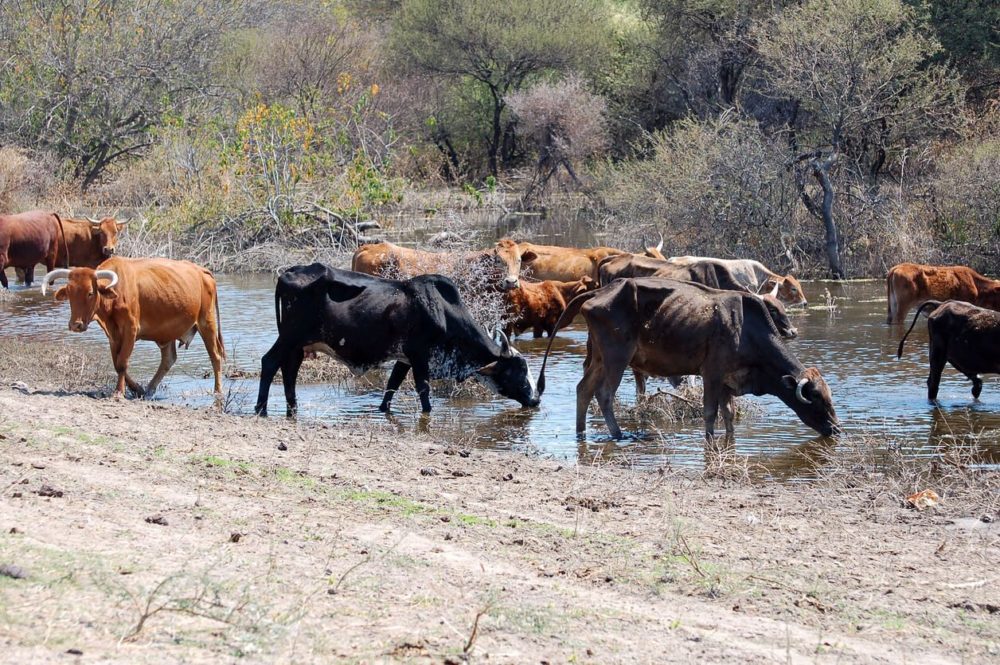Namibia isn’t an obvious location for an agricultural investment. The desert country in Southern Africa is home to just 2.5 million people and has one of the lowest levels of rainfall in the world. Yet it is known in the region for its commercial cattle ranching and livestock farming, which account for about two-thirds of Namibia’s agricultural activity. Indeed, there are nearly as many cattle as people in Namibia (and there are more sheep and camels.)
Long-term, in a country grappling with impacts of climate change, Namibia needs more sustainable methods of growing food, says Nicole Maske, managing partner of Namibian private equity firm EOS Capital.
“Growing the agriculture sector has the biggest impact on economic growth,” she tells AFN. “For Namibia to unleash its full potential and become an agricultural powerhouse in the region, it needs investment.”
EOS Capital’s Euphrates Fund aims to be a channel of private capital to Namibian agri-businesses starved of equity capital. The firm’s first agri-focused fund has raised EOS raised $90 million Namibian (US$5.7 million) from local investors. It is targeting N$150 million ($10 million).
The fund also aims to be a change agent for the sector, by encouraging the adoption of climate-friendly growing practices and technologies, like irrigation and aquaponics. EOS’s impact thesis is that more private investment in sustainable agriculture will catalyze job creation and poverty alleviation. The team also believes it’s the best channel to empower women, says Maske.
Backing smart agriculture
EOS launched in 2015 with a mission to get Namibia’s own investors to channel more capital to the country’s critical sectors of economic growth. Its first fund, Allegrow Fund, raised $30 million from 19 local investors to invest in or buyout growth-stage businesses in manufacturing, utilities, tourism, consumer goods and other sectors.
Its second fund, the Namibia Infrastructure Development and Investment Fund, raised $34.7 million to invest in energy and infrastructure projects, like solar developer Energy Utilities.
Both funds were excluded from doing deals in agriculture, however, says Maske. Although the sector comprises just a small share of Namibia’s GDP, it is a source of livelihoods for more than 40% of the population. And with so much of the sector focused on land and water-intensive livestock farming, the sector is ripe for climate-smart technologies and investment.
“The sector has lacked equity funding, and this has been a hindrance to its growth,” Maske says.
The first intervention needed, she says, is better water management. Namibia largely depends on rain-fed agriculture, in spite of the country’s limited rainfall and abundant but underutilized renewable water resources. One of Euprates’ focus areas will be companies introducing water harvesting and storage technologies in Namibia’s agri-sector, as well as new farming techniques, like hydroponics.
EOS also wants to help Namibia’s agriculture sector increase crop production over livestock production. The firm is looking at opportunities to invest in businesses and technologies that can help convert semi-arid land into productive agricultural land. It is also looking at opportunities to bring in pest- and drought-resistant seed varieties and technologies that give farmers access to better climate and on-farm information.
Euphrates will prioritize investments that strive to have positive environmental impacts and help farmers and agri-businesses adapt to climate change. It is also targeting companies supporting the UN Sustainable Development Goals that are focused on ending poverty and hunger and accelerating gender equality, fair work and economic growth
Building track record
EOS’s 10-year Euphrates Fund will make equity and quasi-equity investments across the agricultural value chain, including businesses in agri-processing, distribution, logistics, commercial production, biomass, inputs like fertilizers and seeds, animal products, retail and equipment.
“The essence is investing in everything ancillary to spur growth of the sector,” says Maske.
The firm has not yet announced any investments, but its pipeline includes an agri-services company, an alternative protein producer, an aquaponics firm, and an agricultural equipment financier.
EOS plans to use Euphrates as a “proof of concept” and to build a track record in the agriculture sector. Ultimately, EOS hopes to channel N$1 billion in private investment to Namiba’s agribusinesses. It is also considering setting up another fund specifically for climate and sustainable investments that can co-invest with its agri- and infrastructure funds.
Of Euphrates’ first close, says Maske, “this was a good place to start because we are able to start investing in some deals.”
“We want to get to a sizable scale where we can start doing bigger deals with regional impact. For that, we’ll go to the international market to fundraise,” she adds. “First, we want to prove our track record.”





